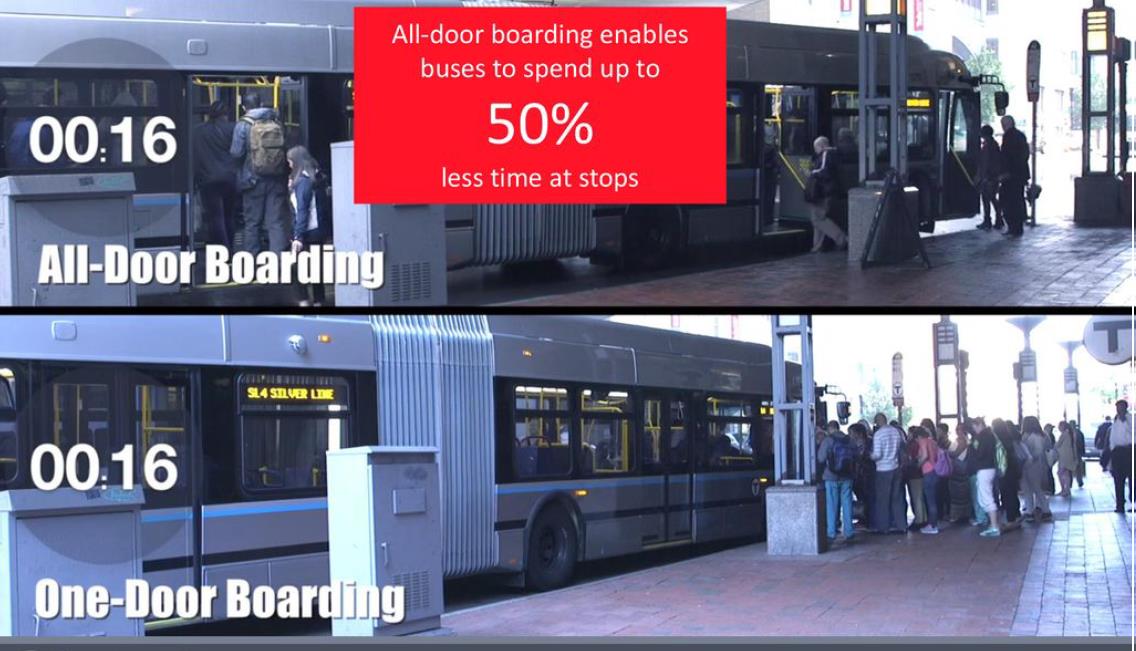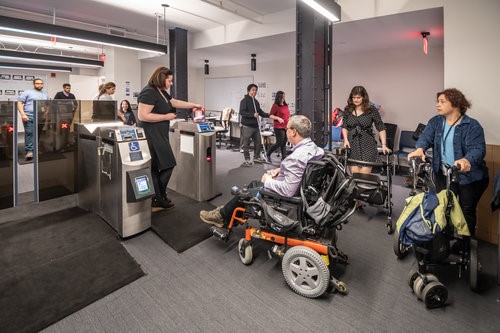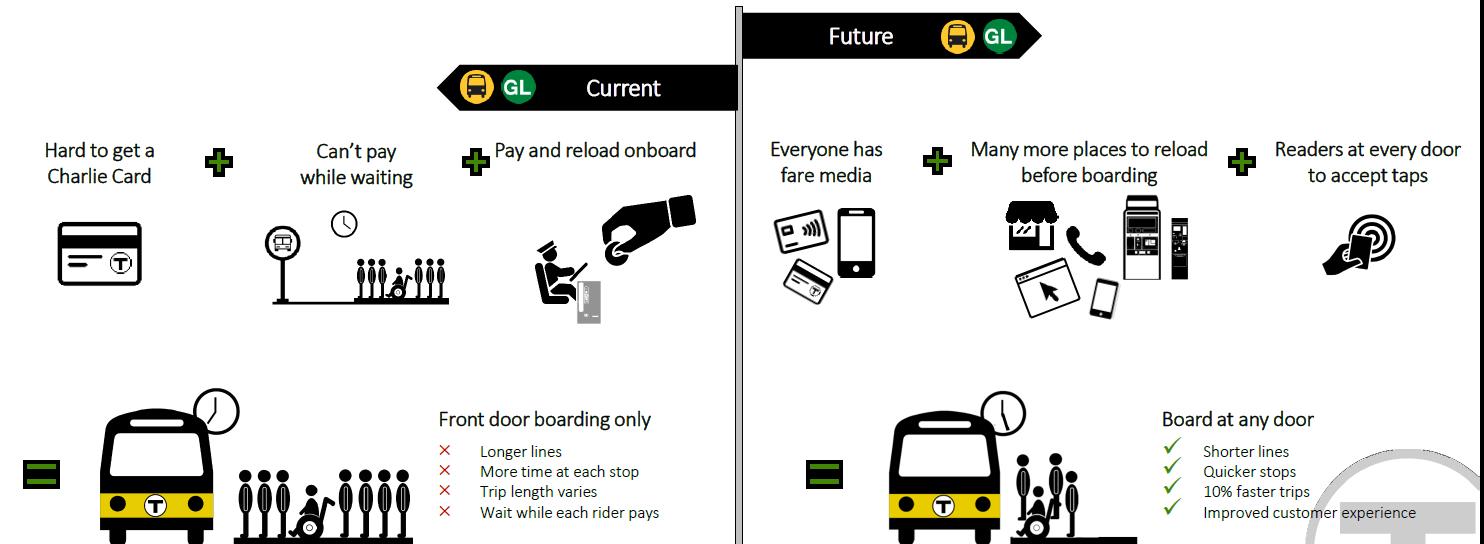
AFC 2.0 is a new approach to fare payment in the greater Boston area allowing for additional flexibility and efficiency for the MBTA and its passenger. All-door boarding enables buses to spend up to 50% less time at stops with multiple readers will be installed at all doors on buses and Green Line trains passengers can quickly board at any door and tap on.
Source: Credit to Massachusetts Bay Transportation Authority
| Project Name | Massachusetts Automated Fare Collection System |
|---|---|
| Location | Boston, Massachusetts |
| Project Sponsor / Borrower | Massachusetts Bay Transportation Authority, Boston AFC 2.0 OpCo LLC (Cubic Transportation Systems, John Laing) |
| Program Areas |
|
| Value Capture Techniques | Special Assessment, Dedicated Sales Tax & Dedicated Local Assessment |
| Mode | Multimodal (passenger rail and bus) |
| Description | To provide a seamless commute experience with a modernized contactless payment system, Cubic Transportation Systems and the Massachusetts Bay Transportation Authority (MBTA) partnered to implement an Automated Fare Collection (AFC) system for transit riders and commuters. The new AFC system replaced the MBTA’s current CharlieTicket/CharlieCard fare collections system to provide for an integrated, reliable, and convenient fare payment and collection system, enabling transit riders to pay fares by tapping contactless bank cards, mobile phones, and fare cards across the entire transportation network.
The program will be addressed in five phases, with each phase starting at the beginning of each calendar year, completing in 2024.
With the project complete, cash will be removed from on-board buses, Green Line trains, and commuter rail, and will enable integrations with other transit services (like parking, paratransit, bike share, ride share, and Regional Transit Authorities). The new system will have fully reconciled, auditable, and accurate revenue deposits and reports, and provide improved uptime and performance under performance-based contracts. |
| Cost | $935.4 million, including both the full capital cost of the system and a ten-year stream of operations and maintenance payments.
|
| Funding Sources | Availability Payment (Dedicated Sales Tax & Dedicated Local Assessment)
* The SCF is repaid following construction by a MBTA milestone payment |
| Project Delivery / Contract Method | Design-Build-Finance-Operate-Maintain P3 procurement model; 13-year Availability Payment concession for the exclusive right to design-implement-finance-operate-maintain a new automated fare collection system for the Massachusetts Bay Transportation |
| Private Partner | Boston AFC 2.0 OpCo LLC
|
| Project Advisors / Consultants | Scheidt & Bachmann (S&B) |
| Lenders |
|
| Duration / Status | On June 15, 2020, the MBTA and the Cubic | John Laing Consortium finalized the contract amendment memorializing the terms and conditions necessary to fulfill the direction and authorization provided by the Fiscal and Management Control Board on April 27, 2020. The project is anticipated to be complete by 2024. |
| Financial Status / Financial Performance | The amended contract totals $935.4 million, including both the full capital cost of the system and a ten-year stream of operations and maintenance payments. Although this represents an increase of $212.1 million in project costs compared to the contract approved in 2018, the new fare collection system remains cost-effective and is projected to collect over $8 billion in fare revenue during its first ten years of operation. |
| Innovations |
|
| Related Links / Articles | |
| Contacts | Adam Veneziano |

Members of the Massachusetts Bay Transportation Authority Riders’ Transportation user testing group prototype devices.
Source: Credit to Massachusetts Bay Transportation Authority

AFC 2.0 is a new approach to fare payment in the greater Boston area allowing for additional flexibility and efficiency for the MBTA and its passenger. Passengers can quickly board at any door and tap on
Source: Credit to MBTA